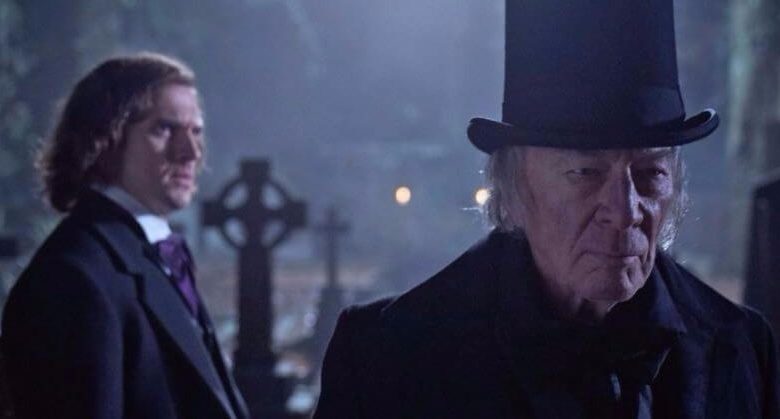
Do we really need another spin on Scrooge?
Yes, it’s a beloved story that demands to be told each Christmas. But when everyone from Mr. Magoo to the Muppets has tackled ol’ Ebenezer it might be time to take a knee.
Or not.
“The Man Who Invented Christmas” finds a worthy take on Charles Dickens’ tale. How? It goes right to the source. How did Dickens come up with a story that became part of the season’s DNA? The film sparks more than our nostalgia circuits. It taps into the creative spirit with a very Scrooge-like redemption.
“Humbug?” How about, “More, please?”
Dan Stevens is Dickens, the celebrated author of “Oliver Twist” whose literary hot streak had cooled. He’s the not-so-proud owner of several duds, and he’s plotting a Christmas-themed comeback. That might sound smart to modern audiences. In Dickens’ era it was more like a commercial death wish.
The Christmas holiday had fallen off the cultural radar in England circa 1843. Dickens persisted all the same before running into an artist’s no. 1 fear:
Writer’s block.
RELATED: ‘The Star’ May Be Your New Christmas Tradition
Dickens battled on, fighting distractions from friends and family alike – including his ne’er do well dad (Jonathan Pryce). His “Christmas Carol” slowly takes shape, especially when the central character comes to life before our eyes.
Take a bow, Christopher Plummer.
For a while “Christmas” coasts on the warm fuzzies “Carol” generates each December. It’s both fun and predictable to watch Dickens grapple with key “Carol” elements before the obligatory “a-HA” moment.
The recent “Goodbye Christopher Robin” tripped over a similar trope.
FAST FACT: Charles Dickens wrote “A Christmas Carol” after reading about the horrors child laborers faced in the mid 1800s.
“Christmas” matures beyond those feel-good morsels. This Dickens is a tortured soul with a backstory as bleak as Scrooge’s. He’s a 19th century star who barks at his help without an ounce of regret. As a Social Justice Warrior might bark, check your privilege, fella.
That means a redemption story may be in the works. Stevens is up to the task, capturing an artists’ insecurities without losing his humanity.
Unlike most modern movies, “The Man Who Invented Christmas” gains strength in the third act. The emotional stakes spike right on cue, and the creative license taken from the real story pay dividends.
Plummer makes every moment better, embodying Scrooge’s cynicism without stooping to mustache twirling cliches.
Will the film follow in the source material’s footsteps and become a seasonal staple? Time will be the judge. For now, this PG-rated yarn serves as a prime companion to a story we caught get enough of … still.
HiT or Miss: “The Man Who Invented Christmas” may sound blasphemous on the surface – a certain someone’s birth had more to do with the holiday – but the film is a seasonal treat all the same.

Since I read and/or watch A Christmas Carol every Season (the annotated book and the Patrick Steward TV movie), I look forward to seeing this movie.
The George C Scott version was filtered through too strong of leftist modern political talking points.